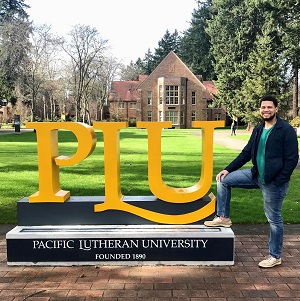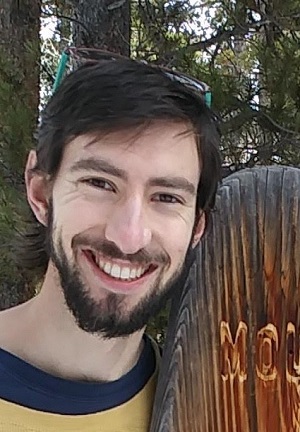2020 Philosophy Capstones
Dr. Sergia Hay, Seminar in Philosophy
This year’s philosophy capstone course investigated a frequently used and criticized philosophical method: thought experiments. Thought experiments have been employed in every branch of philosophy, and in this course we focused on some notable examples from ethics and metaphysics: the trolley problem, the experience machine, the floating man, and the ship of Theseus. We examined these puzzles, considered solutions presented by other philosophers, attempted our own answers, and also inquired whether this particular method has value. In the spring term, students developed their own projects based on famous thought experiments including the ticking time bomb, the experience machine, the pond, and the butterfly dream in order to explore issues such as the moral permissibility of torture, the limitations of virtual reality and the advantages of adversity, our duties to help others in need, and our attitudes toward the environment.
These capstones will be presented online.
Monday, May 18
3:00-3:20pm - ``A Moral Test: The Ticking Time Bomb Experiment``
Kristine Heimli McKinney
Torture is deemed illegal and immoral across the world. In the thought experiment called the Ticking Time Bomb we imagine ourselves in a situation where we have to either hurt one to save thousands, or do nothing, indirectly killing thousands. In my paper, I looked at the possible responses provided by the moral theories of utilitarianism and deontology as well as the concept of double effect and created a revised experiment to prove that we may find a time when torture, within limitations, may be morally permissible.

3:20-3:40pm - ``The Experience of a Lifetime``
Akeem Bentick
My capstone is focused on wrestling with some of the deeper implications of living a life within the experience machine. My aim Is to show that while the experience machine allows the opportunity to express creativity and pursue a plethora of pleasures, it lacks the authentic substance that is necessary for living a fulfilling life. Rather, it introduces more problems than it solves.

3:40-4:00pm - ``The Evil, Misanthropic Genius: Diving into a Thought Experiment and Emerging with Hope``
Peter Olschner
In my paper I examine the implications of The Evil, Misanthropic Genius, a thought experiment I developed about the ethics surrounding the annihilation of the human species for a greater good: environmental protection and the preservation of hundreds billions of non-human animals. I describe how my perspective on these ethical matters underwent a shift throughout my research. At the beginning of my research my perspective was largely informed by the work of utilitarian ethicist Peter Singer and his book titled How Are We to Live?: Ethics in an Age of Self-interest. However, after reading two works foundational to Nietzsche’s conception of morality, Thus Spoke Zarathustra and Beyond Good and Evil, I encountered Nietzsche’s criticism of utilitarianism and his critical diagnosis of the Judeo-Christian origin of our modern morality. Ultimately, I find Nietzsche’s approach to ethics more agreeable and appropriate for answering the fundamental question asked by my thought experiment: what is the correct moral foundation for our actions, and where does the interest of an individual human fit into the entire schema of reality when we approach questions of morality?

4:00-4:20pm - ``Virtuous Living as the Way to Combating Climate Change``
Virak Pheng
This paper addresses the commonalities found in the ancient Greek philosophical traditions and classical philosophical Taoism and how they can help us cultivate the skills to combat climate change. To produce a comparative analysis of the two traditions, The Butterfly Dream by Zhuangzi and The Cave Allegory by Plato will be used as primary sources. Then, by using interpretations of philosophers from their respective philosophical traditions, this paper aims to not offer quick solutions or options of technology to combat climate change but to offer understanding of how humans as a whole caused climate change, and relate it to how we can reverse our actions individually.




Social Media